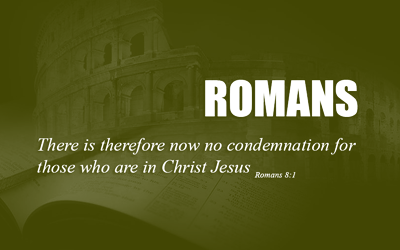Romans 8:9-13
In the flesh. Your body is dead. To whom do you owe your obligations?
(Bấm vào đây để đọc tiếng Việt)
IN THE FLESH
 "9You, however, are not in the flesh but in the Spirit, if indeed the Spirit of God lives in you. Now if anyone does not have the Spirit of Christ, this person does not belong to him." (Romans 8:9)
"9You, however, are not in the flesh but in the Spirit, if indeed the Spirit of God lives in you. Now if anyone does not have the Spirit of Christ, this person does not belong to him." (Romans 8:9)
Whenever we come across the term "flesh," we tend to link it with immoral actions committed by individuals. Nevertheless, if this were the case, then no living being would belong to Christ since Romans 6:17 states that we are all "slaves to sin." Hence, we need to alter our mindset regarding the term "flesh" in this context, as we previously attempted to explain when examining Romans 6:15-23.
It’s hard to picture requesting a “slave to sin” to stop sinning. Consequently, we must acknowledge that being “not in the flesh” means refraining from using our physical actions as the sole criterion for assessing our connection with God. The Colossians, while following regulations such as “do not taste, do not handle, do not touch,” were doing it from the position of the flesh and presuming that by doing so, they could fulfill God’s righteous standards.
So, “if indeed the Spirit of God lives in you,” you no longer rely on your flesh, your own fleshly efforts, to please God, because if you still do, you “do not belong to Him.” This verse underscores the grave peril of those who continue to walk in the flesh, meaning that the law remains their custodian. Perhaps here Galatians 5:4 can serve as a great reminder.
You who are trying to be declared righteous by the law have been alienated from Christ; you have fallen away from grace! (Galatians 5:4)
Paul’s warning is directed not towards those who break the law, but towards those who are attempting to achieve holiness through adherence to it.
Galatians contains another verse that parallels the phrase “not in the flesh but in the Spirit,” which can be found in Galatians 5:18: “But if you are led by the Spirit, you are not under the law.” This verse draws a comparison between “in the flesh” and “under the law.” Although there may be some ambiguity regarding “in the flesh,” the same is not true for “under the law.” In fact, one could rephrase verse 9 as “if the Spirit of God dwells in you, you are not under the law.” Therefore, if you are still living according to the law, it is evident that the Holy Spirit does not reside within you.
Let us now consider the meaning of being in the Spirit. It entails placing your complete trust in the completed work of Christ on the cross, acknowledging that no good works you do can make you righteous before God except what Jesus has already accomplished on your behalf. Any attempt to attain God’s standard of righteousness through other means is regarded as “filthy rags,” as Isaiah 64:6 describes it.
YOUR BODY IS DEAD
“10But if Christ is in you, your body is dead because of sin, but the Spirit is your life because of righteousness. 11Moreover if the Spirit of the one who raised Jesus from the dead lives in you, the one who raised Christ from the dead will also make your mortal bodies alive through his Spirit who lives in you.” (Romans 8:10-11)
Numerous Christians, along with followers of almost all religions worldwide, strive to eliminate sins from their lives. Some resort to extreme measures, inflicting pain on themselves, while others deprive themselves of physical needs or senses to achieve a higher level of being. They engage in prolonged periods of prayer or fasting. Christians who believe in progressive sanctification frequently discuss ways to make their bodies more holy and sanctified.
The arrival of the law intensifies the need to eradicate sin. On one hand, you are aware that you are a “slave to sin,” while on the other hand, there is the expectation that you should not sin according to the law. This puts the believer in a seemingly impossible situation. Nevertheless, this is precisely where the law can achieve its intended purpose of compelling sinners to cry out: “Wretched man that I am! Who will rescue me from this body of death?” (Romans 7:24). Ironically, many believers further intensify their effort to do the impossible instead of looking to their Redeemer and rest in what He’d already done.
The good news is Paul declares that “the body is [already] dead due to sin,” a reality that has been present since the fall of man. And since being essentially dead, the body cannot be made holy or sanctified, yet some Christians advocate for progressive sanctification as an achievable goal.
In verse 11, Paul encourages the Roman believers to stop trying to improve their dead bodies, because when Christ returns at the last trumpet, the Spirit of God who raised Jesus from the dead will also raise their bodies as incorruptible (1 Cor 15:51-52).
Paul discussed in Galatians 3:1-3 the fruitless endeavor of using the flesh as a method to gradually purify oneself. In some Bible translations, the phrase “human effort” is rendered as “flesh.”
1You foolish Galatians! Who has cast a spell on you? Before your eyes Jesus Christ was vividly portrayed as crucified! 2The only thing I want to learn from you is this: Did you receive the Spirit by doing the works of the law or by believing what you heard? 3Are you so foolish? Although you began with the Spirit, are you now trying to finish by human effort? (Galatians 3:1-3)
TO WHOM DO YOU OWE YOUR OBLIGATIONS?
“12So then, brothers and sisters, we are under obligation, not to the flesh, to live according to the flesh 13(for if you live according to the flesh, you will die), but if by the Spirit you put to death the deeds of the body you will live. (Romans 8:12-13)
Verse 10 implies that since our bodies are already dead, we are no longer obligated to them, and all of their deeds are likewise dead. This truth was established in Romans 6:4-6, which we previously discussed, stating that we were buried and crucified with Christ. It’s important to comprehend the symbolic significance of this truth. Although we are physically alive, we are regarded as having been buried and crucified with Christ. Similarly, even though our bodies continue to sin, their wrongdoing is viewed as having been erased. That is how the deeds of the body are put to death: through faith, not through works. That is how the just shall live by faith.
This is only applicable to those who live by faith and are not subject to the law. In simpler terms, they do not live according to the flesh, and they are not concerned with its actions or inactions.
We already studied this truth a few verses ago:
For the law of the life-giving Spirit in Christ Jesus has set you free from the law of sin and death. (Romans 8:2)
If the law of sin and death still governs your life, then you are not in Christ as stated in verse 9.
Nghi Nguyen
- Scripture quoted by permission. All scripture quotations, unless otherwise indicated, are taken from the NET Bible® copyright ©1996-2006 by Biblical Studies Press, L.L.C. All rights reserved.
Disclaimer: This is my own opinion on the topic, which does not necessarily reflect the church's theology, or beliefs of the individuals in it — Nghi Nguyen
